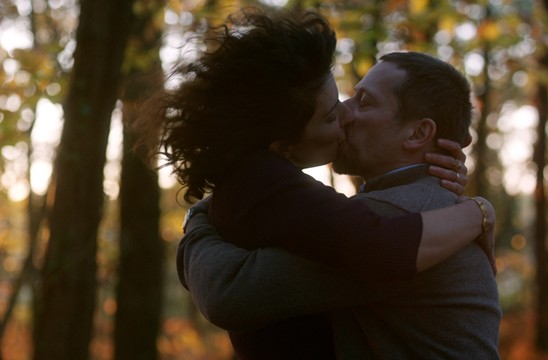Two Days and One Night
The Dardenne brothers (Rosetta, The Child) are among the rarefied camp of filmmakers who have managed to win the Palme dOr not just once but twice. Their latest, Two Days One Night won’t bring them to any new audiences. Despite regular doses of well-earned critical adoration the Dardenne’s have always struggled at the box-office in the UK. Aided by the star wattage of Marion Coitillard, this tale of a woman campaigning to keep her factory job under the threat of redundancy was a critical favourite for many at the Festival. For me it was a minor Dardenne’s which felt a little schematic, but minor Dardennes are always major anyone else and I’m sure Curzon Artificial Eye will do a good job getting it out in the UK.

The Blue Room
Mathieu Amalric’s second feature as director, The Blue Room delivers a competent reasonably commercial adaptation of George Simenon’s (Maigret,Red Lights) thriller. With much in common tonally to the writing of Patricia Highsmith, this tale of adultery and murder is very well acted but never quite manages to get under the skin. Amalric plays a modestly successful man in provincial France running his own agricultural business, living in a fancy designer house with a young family, who finds himself in the depths of an affair and arrested for the murder of his wife. The film is told in a series of flashbacks as Amalric and his lover are tried for the murders of their respective spouses. A likely acquisition for UK distribution, this would play relatively well with indie cinemas looking for a commercial foreign language thriller fare. It’ll likely get above average press but certainly not the 5 star press it would need to become a break out hit.
Party Girl
The opening film for Un Certain Regard, and the top prizewinner for this section of the festival, Party Girl from director Marie Amachoukeli invites immediate comparison with last years Gloria, but doesn’t quite cut it. An ageing woman, Anglique (played with wonderful conviction and depth by Anglique Litzenburger) has spent a lifetime as a hostess in a table dancing club and finds herself pondering leaving the familiarity of her old life, and the friendship of her fellow women at the club, for a chance at a more domestic existence with a customer who proposes to her. It’s a tender portrait of a woman attempting to find a place in the world for herself after a lifetime using her, now fading, looks to earn a living. An outsider by nature, Anglique’s attempts to fit into a regular suburban life with a man she struggles to love, is at once a fantasy and also a kind of death for her. As she stumbles, inebriated and lonely into her new life we are at once struck by her courage but also self-destructiveness.

It’s a moving portrayal which is never exploitative, but the narrative sags in the middle before building to a powerful sobering conclusion. Its realist aesthetic and social conviction undercuts any sensationalism which the subject matter could easily stray into, but it also limits the size of its potential audience. It’s not a pleasurable film to watch, but it has an emotional charge which would see decent, if not rave, reviews which would likely translate into a modest audience should the film be picked up for UK distribution. Given the stronger Gloria’s failure to perform strongly at the indie UK box-office, this lesser film will be an uphill struggle for a brave distributor, but certainly a worthwhile and interesting piece of cinema for committed cinephiles.

